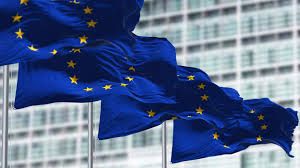On October 31, 2024, Vogue Business published an article highlighting the growing challenges facing the Italian textile sector due to new European Union sustainability regulations. These regulations, aimed at promoting responsible practices in the fashion industry, impose strict requirements on Italian suppliers, particularly regarding transparency, traceability, and carbon footprint reduction. While these measures are intended to align the industry with climate goals, they create significant financial and operational hurdles for businesses, especially for small artisanal workshops struggling to keep up.

Iconic companies such as Lanificio Cangioli and Reda have voiced concerns about the high costs associated with complying with EU standards, including frequent audits and investments in costly eco-friendly technologies. These brands, known for their commitment to traditional and sustainable manufacturing, now find themselves in a delicate position where sustainability-related expenses often exceed their financial capacities. Additionally, many lament the lack of financial support from major brands to share these added costs, forcing them to shoulder the burdens of new regulations alone.
Another challenge lies in the inconsistency of standards, with transparency and data requirements varying from one EU country to another. This bureaucratic complexity adds an extra burden on businesses, which must allocate resources not only to meet compliance demands but also to navigate an uneven regulatory system. Faced with these constraints, many Italian manufacturers fear for their competitiveness and survival in an industry increasingly dominated by large companies with abundant resources to meet sustainability standards.
The Vogue Business article also highlights Italian suppliers’ call for a more collaborative approach. For them, lasting and meaningful change requires close cooperation with major brands, along with long-term partnerships where costs and responsibilities are fairly shared. Manufacturers hope that these new rules may eventually enhance the prestige and competitiveness of the “Made in Italy” label, while respecting the country’s craftsmanship and traditional values.
The new European regulations pose major challenges for Italian manufacturers, especially SMEs that form the core of the “Made in Italy” label. Investors should carefully assess companies demonstrating adaptability and a proactive strategy to manage these compliance costs. Although expensive in the short term, these standards may offer a competitive advantage in the long term for companies capable of meeting the new sustainability expectations. Prioritizing companies that establish strong partnerships and responsible practices could prove rewarding in the evolving textile industry landscape.
Source:


